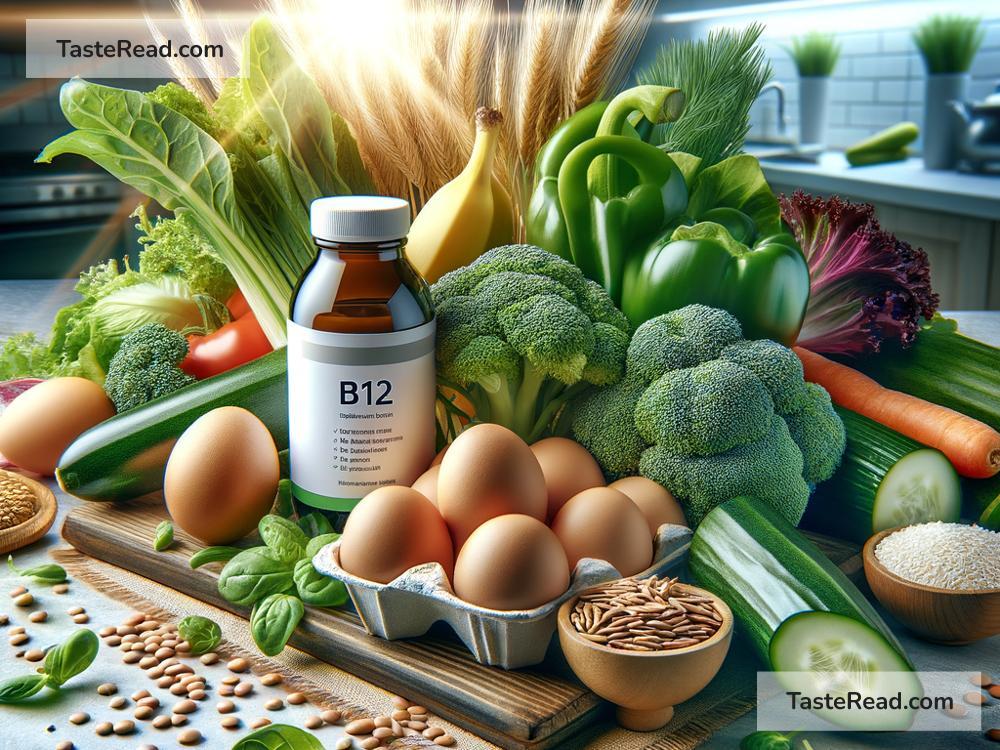The Role of Vitamin B12 in Metabolic Health
When it comes to staying healthy, vitamins play a huge role in how our bodies function. One of the key vitamins you need is vitamin B12. This vitamin is a powerhouse and has plenty of benefits, especially when it comes to your metabolism. Let’s dive into the importance of vitamin B12 and how it helps keep your body running smoothly.
What Is Vitamin B12?
Vitamin B12 is a water-soluble vitamin that is essential for your body. It’s also known as cobalamin, and it’s one of the eight B vitamins. This vitamin is unique because it’s only found naturally in animal-based foods like meat, fish, eggs, and dairy products. While it doesn’t come from plants, some vegetarian foods are fortified with B12 to help people get enough of it.
Your body doesn’t produce vitamin B12 on its own, which means you need to get it through your diet or supplements. It is stored mainly in the liver, and your body can use this reserve for many years. However, if you don’t consume enough vitamin B12 regularly, you may eventually develop a deficiency.
How Does Vitamin B12 Help Metabolic Health?
Your metabolism is how your body converts the food you eat into energy. Vitamin B12 plays a major role in this process. Here are some of the key ways B12 supports metabolic health:
1. Energy Production
Vitamin B12 helps your body break down proteins, fats, and carbohydrates from the food you eat. This allows your body to use the nutrients for fuel and energy. Without enough B12, your metabolism slows down, leaving you feeling tired and sluggish.
2. Red Blood Cell Formation
Vitamin B12 is essential for creating healthy red blood cells. Red blood cells carry oxygen to every part of your body, including your muscles and organs. When your body lacks enough vitamin B12, it can lead to a condition called anemia, which affects your energy levels and overall health.
3. DNA and Cell Repair
Your body is constantly repairing and growing cells, and vitamin B12 plays a part in creating DNA—the genetic material inside every cell. This means that B12 helps your body produce new, healthy cells that allow your metabolism to work properly.
4. Nervous System Support
Vitamin B12 is also important for the health of your nervous system. It helps maintain the protective covering of your nerves, which allows them to send signals efficiently. A healthy nervous system is essential for tasks like muscle movement and digestion—both of which are directly tied to your metabolism.
Signs of Vitamin B12 Deficiency
Not getting enough vitamin B12 can affect your metabolic health negatively. Since B12 is so vital, your body will let you know when it’s running low. Here are some common signs of vitamin B12 deficiency:
- Fatigue: Feeling constantly tired or weak even after resting.
- Brain Fog: Difficulty concentrating or memory problems.
- Pale Skin: A lack of healthy red blood cells can give your skin a pale appearance.
- Tingling or Numbness: A deficiency may cause nerve damage, leading to tingling in your hands or feet.
- Mood Changes: Vitamin B12 influences brain chemicals, so low levels may lead to feelings of depression or irritability.
If you notice these symptoms, it’s important to see a doctor, as prolonged deficiency can lead to more serious health issues.
How to Get Enough Vitamin B12
The good news is that vitamin B12 is easy to get if you eat a balanced diet or take supplements. Here’s how you can make sure your body has enough of this important vitamin:
1. Eat B12-Rich Foods
Foods high in vitamin B12 include beef, chicken, fish, eggs, dairy products, and shellfish like clams and oysters. If you’re vegetarian or vegan, look for plant-based foods that are fortified with B12, such as cereals, soy milk, and nutritional yeast.
2. Take Supplements
If your diet doesn’t provide enough B12 or if your body has trouble absorbing it, you can take a vitamin B12 supplement. It’s available in tablets, capsules, or even injections for people with severe deficiencies.
3. Check for Absorption Issues
Certain health conditions, such as Crohn’s disease or celiac disease, can stop your digestive system from absorbing vitamin B12 properly. Older adults and people who take medications for acid reflux might also have trouble absorbing it. If this is the case, talk to your doctor about alternative ways to get enough B12.
Why Vitamin B12 Matters for Everyone
Vitamin B12 is important for everyone, but certain groups of people are more at risk of deficiency than others. Vegans and vegetarians need to plan their diets carefully, as plant foods don’t naturally contain B12. Older adults also have a higher risk because their bodies don’t absorb the vitamin as efficiently. Women who are pregnant or breastfeeding need extra B12 to support their baby’s development.
Taking care of your metabolic health begins with getting enough nutrients, and vitamin B12 is one of the most essential for energy and cell function. Whether you get it through your diet or supplements, vitamin B12 will help your body run like a well-oiled machine.
Final Thoughts
Vitamin B12 is key to keeping your metabolism and overall health on track. It gives you energy, supports red blood cell production, and helps maintain a strong nervous system. If you eat foods rich in B12 or take supplements as needed, you’ll be helping your body stay healthy and full of energy.
So, don’t forget about this important vitamin—it’s small but mighty when it comes to keeping you healthy!


